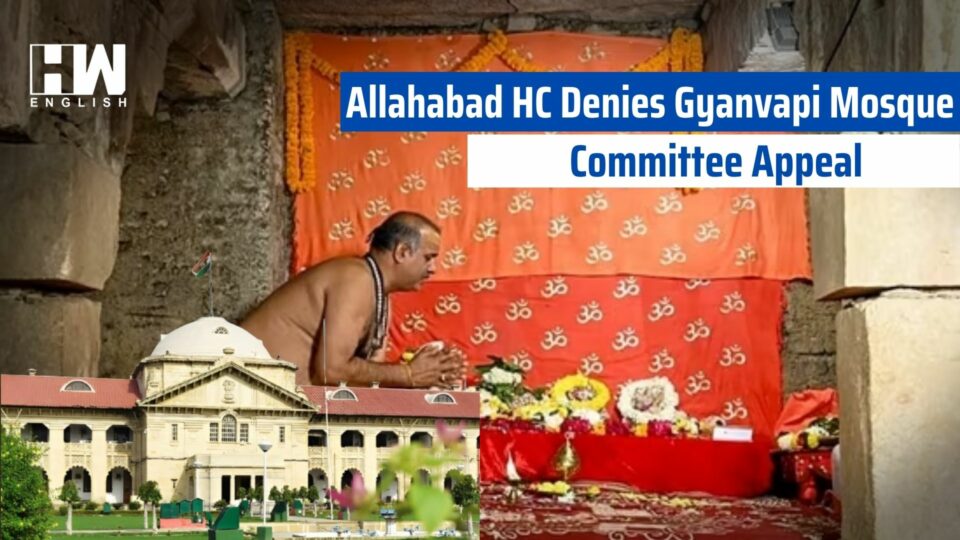On Monday, the Allahabad High Court rejected the Gyanvapi Mosque committee’s appeal against the Varanasi district court’s ruling allowing prayers in a cellar within the Gyanvapi mosque complex. Justice Rohit Ranjan Agarwal of the Allahabad HC delivered the decision.
Justice Agarwal said while pronouncing its verdict, “After going through the entire records of the case and after considering arguments of the parties concerned, the court did not find any ground to interfere in the judgment passed by the district judge dated 17.01.2024 appointing DM, Varanasi as receiver of the property as well as the order dated 31.01.2024 by which the district court had permitted Puja in the Tehkhana”.
Advocate Vishnu Shankar Jain, representing the Hindu faction, affirmed that the ongoing puja in the ‘Vyas Tehkhana’ would continue following the Allahabad High Court’s dismissal of the Anjuman Intezamia’s appeal. He stated readiness to lodge a caveat if the case reached the Supreme Court.
On January 31, the Varanasi court decided that the Hindus could conduct prayers in the southern cellar of the Gyanvapi mosque, known as the ‘Vyas Tehkhana.’ Additionally, the court instructed the district magistrate to facilitate arrangements for ‘puja’ and appoint a ‘pujari’ nominated by the Shri Kashi Vishwanath Temple Trust.
On February 1, the Anjuman Intezamia Masajid Committee, responsible for managing the Gyanvapi Mosque in Varanasi, submitted a petition to the Allahabad High Court, contesting the decision of the Varanasi court. This action followed the Supreme Court’s rejection of the mosque committee’s urgent plea. Notably, the mosque has four cellars, known as ‘tahkhanas,’ in its basement, with one still under the ownership of the Vyas family, former residents of the area.
The mosque committee asserted that the ‘Vyas Tehkhana’ belonged to them as part of the mosque grounds, and neither the Vyas family nor any other entity had the right to conduct worship inside the Tehkhana.
Conversely, the Hindu group argued that the Vyas family conducted religious rituals in the basement until 1993, but they were compelled to cease following a directive from the state government.
As an independent media platform, we do not take advertisements from governments and corporate houses. It is you, our readers, who have supported us on our journey to do honest and unbiased journalism. Please contribute, so that we can continue to do the same in future.

